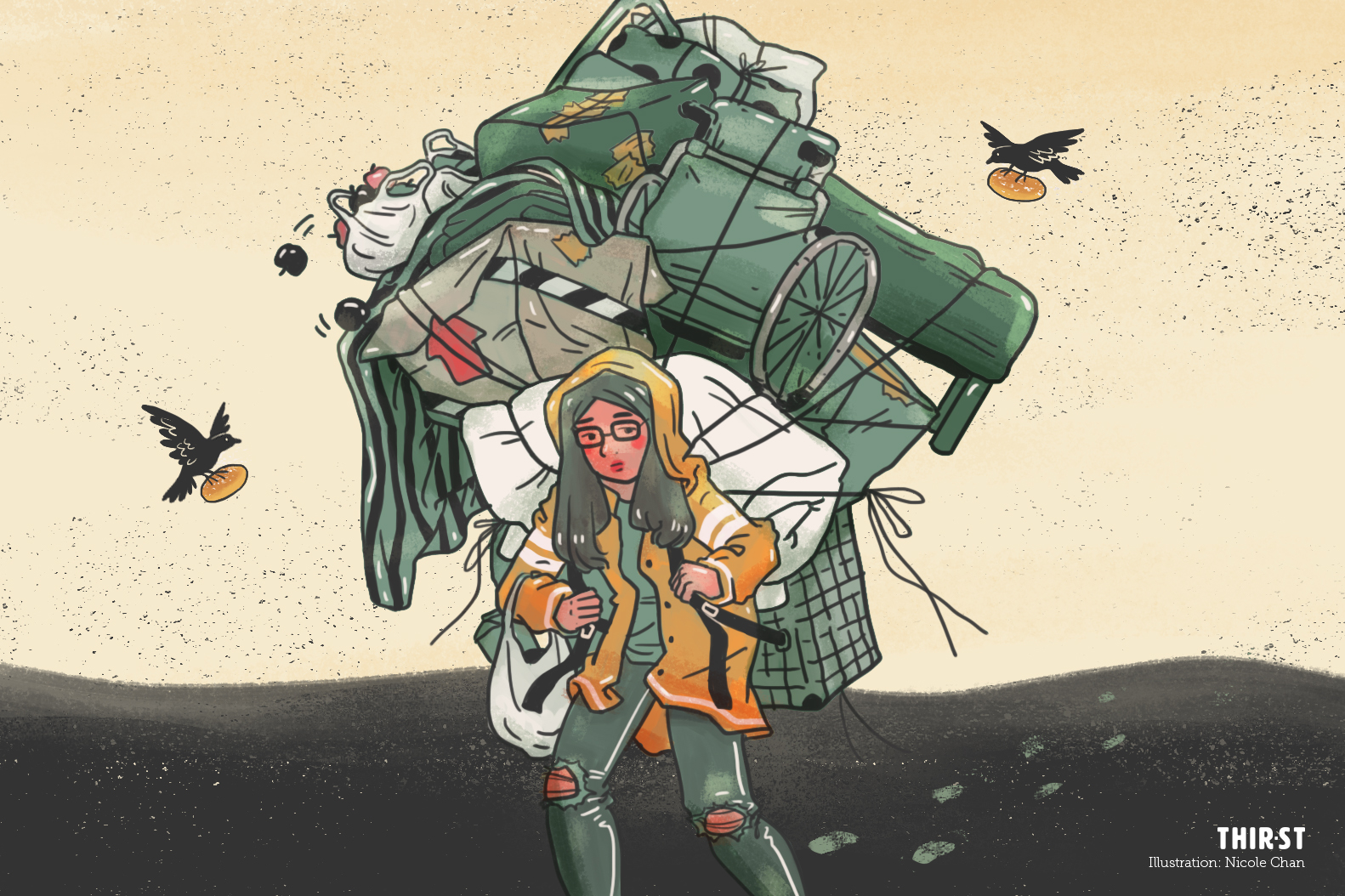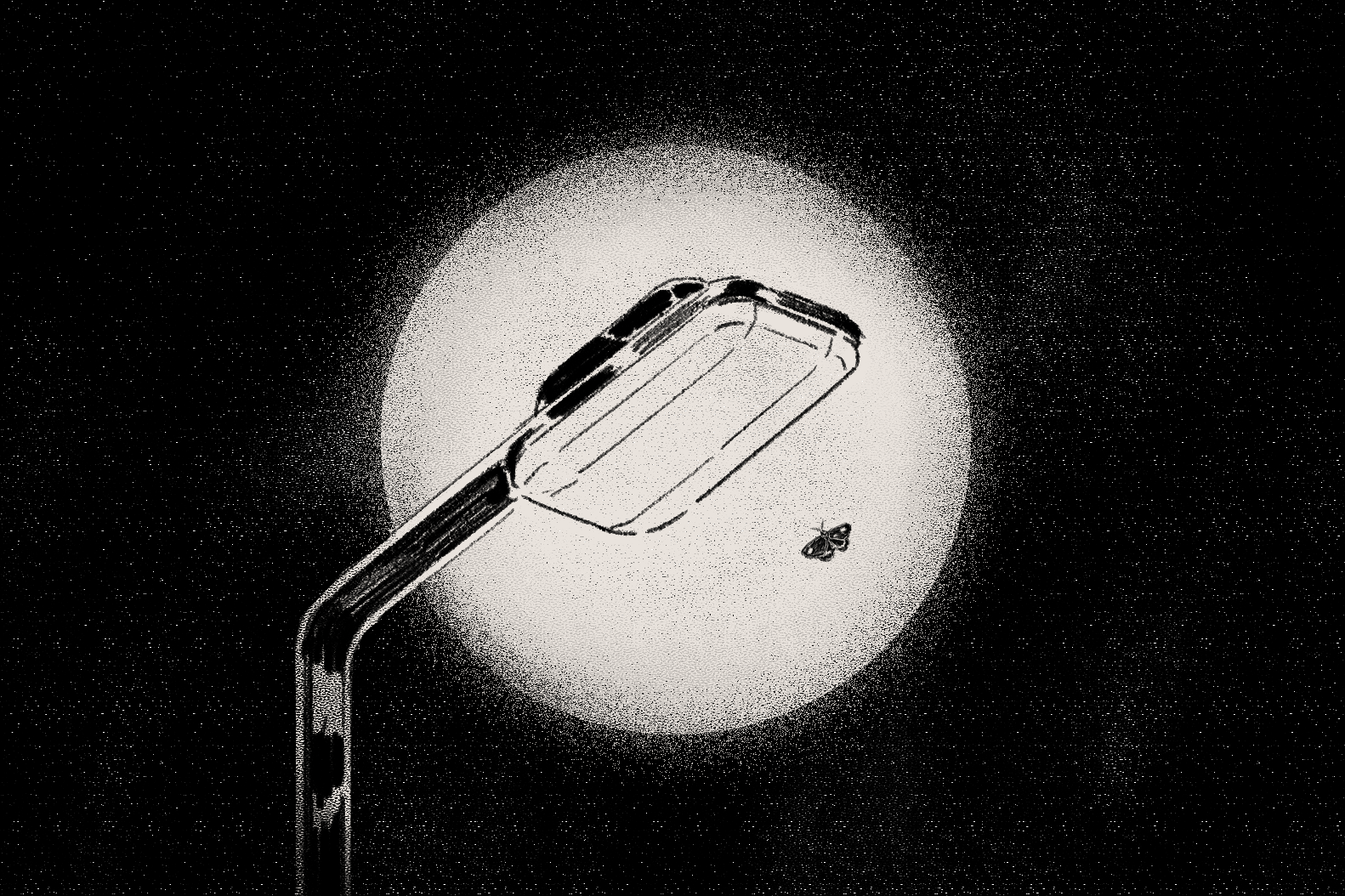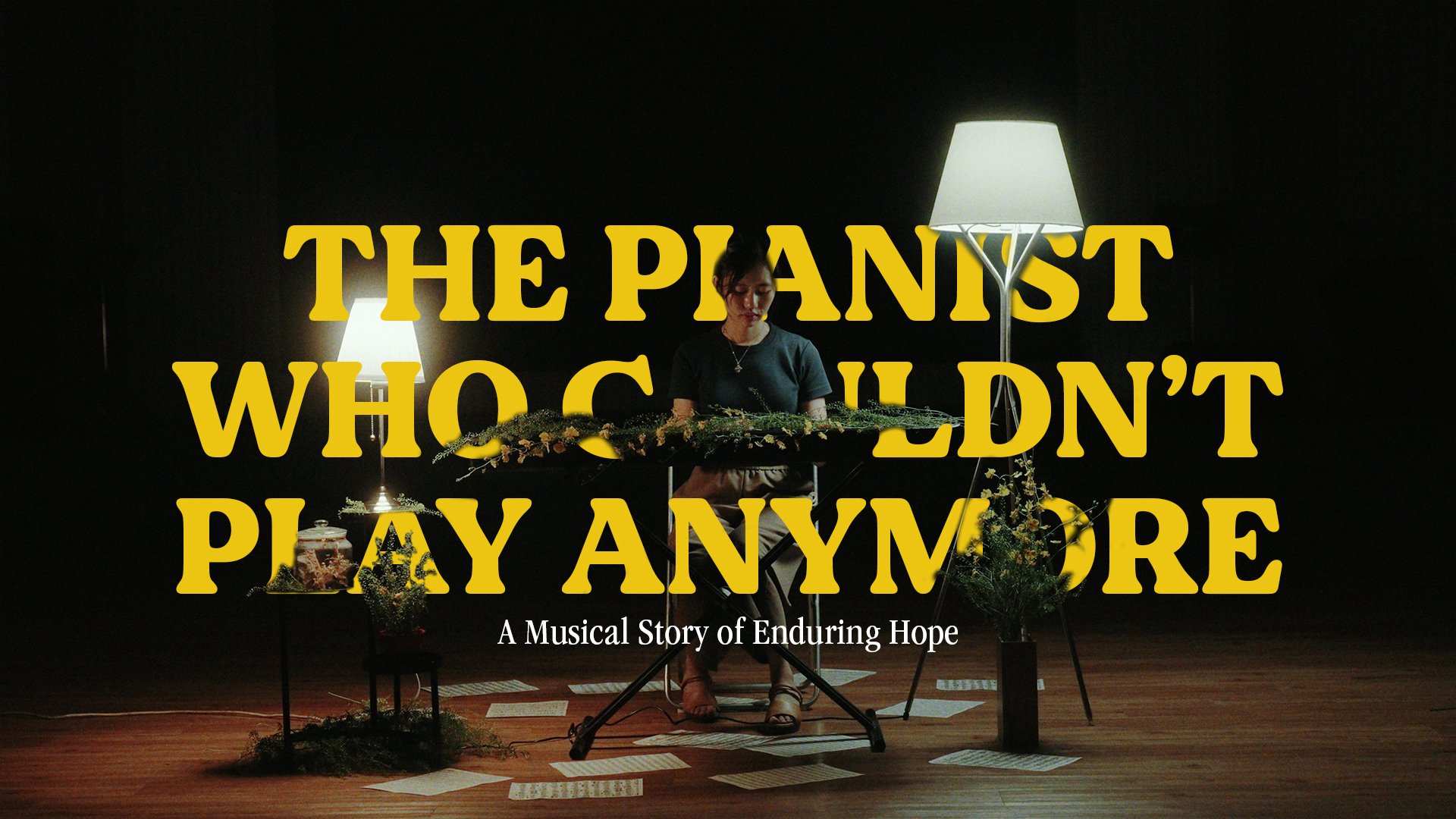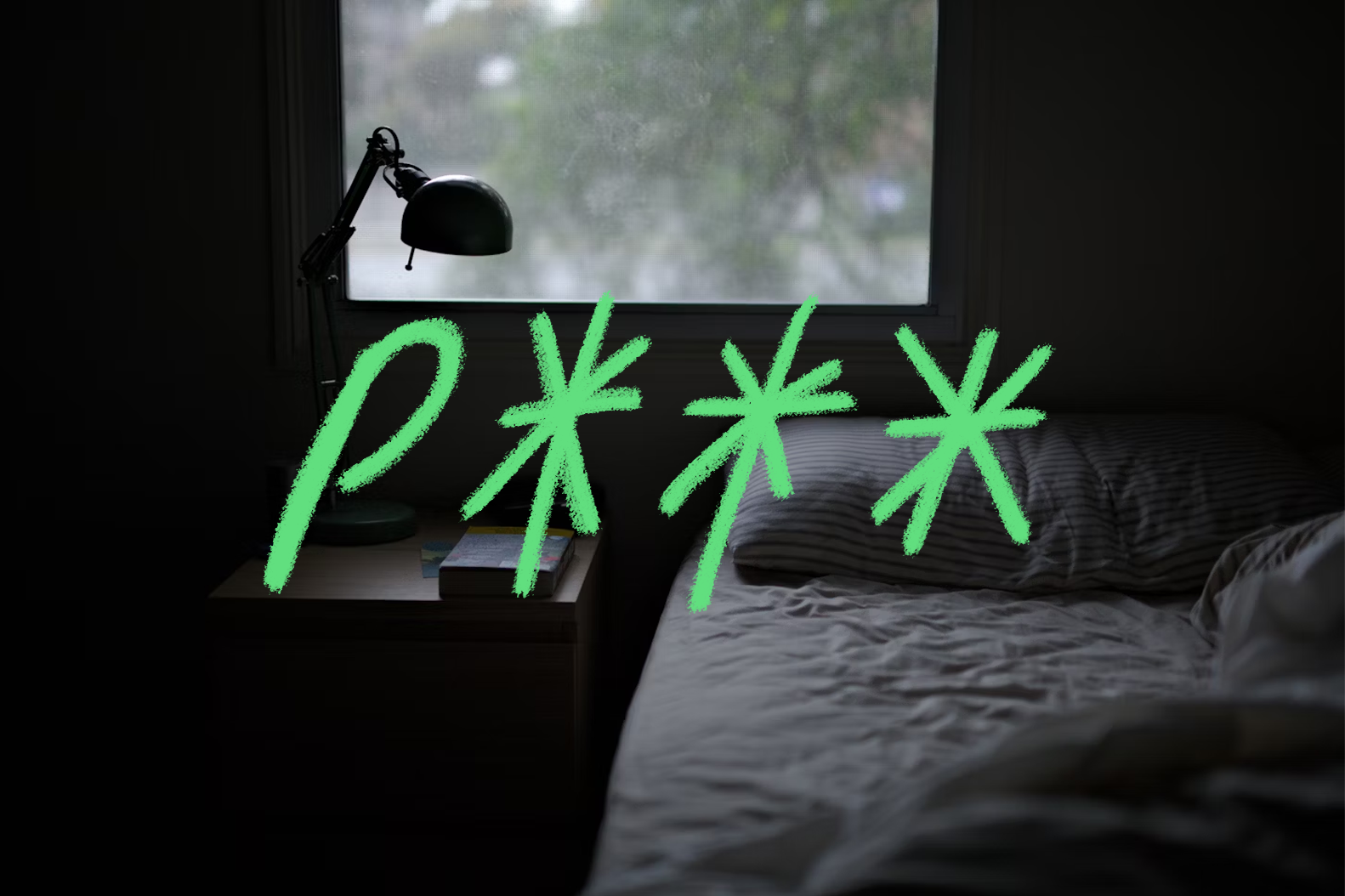Nothing in life ever prepared me for what happened. I’m 25, the only child in the family and not married. Now I’m the sole breadwinner of the family with a disabled father. And it has not been easy at all.
Earlier this year, my dad was admitted into the hospital after a fall at home that led to an array of chest pain symptoms such as breathing difficulties and dizziness. I did not know just yet, but our lives were about to change completely.
He was discharged with a referral to another institution to get an open-heart bypass surgery a month later. While the operation went smoothly and finished sooner than expected, my dad took longer than the average patient to regain consciousness while in the Intensive Care Unit (ICU).
We had just reached home that night and were about to take our first meal of the day when my phone rang.
Unknown landline number.
It was my dad’s surgeon. My heart must have skipped many beats that moment. “He’s awake… but the left side of his body is completely unresponsive. We think he has suffered a stroke.”
My legs gave way, and I crumbled to the floor.
What exactly does a stroke do to you? Why him? Why us? Is he never going to move again? Why, God, why?
The days that followed were long and the nights were sleepless. My dad was sent for repeated scans just to make sure that he didn’t have any further brain damage or require an immediate brain surgery.
We never found out why my dad had gotten the stroke. Medically, they found no real direct cause. They tried to explain possible reasons – he was a smoker, he had high cholesterol and high blood pressure… but these offered no comfort to us. More than three-quarters of his right brain was black in the scans – brain damage which could not be reversed.
It’s traumatising to watch your father turn into a completely different person. His eyes moved differently, his mouth was slanted on one side. For the first few weeks post-operation, he was slurring heavily and it was also the first time I ever saw my dad weep.
He couldn’t tell day and night apart. He had lost the concept of time and dates. He kept recounting the vivid nightmares and hallucinations he was having – a sure sign of post-stroke delirium, one of the doctors told us.
“I’ve never seen a patient fully recover from a stroke of this extent. I can only say he’ll probably not be bedridden forever, but I don’t know about the rest,” the neurologist told me, “You can only pray.”
Our future looked bleak.
Why, God, why?
Countless nights were spent with my knees on the floor in my room, crying out to God to have mercy on us.
Be gentle with us, I had repeatedly written down as a petition to God in my journal.
Our days in the hospital seemed endless. As my dad’s primary guardian because my mother does not speak English, my day at work would be interrupted with many unwelcomed phone calls from the hospital. Within a span of two weeks, we went from the cardiothoracic ICU to the neurology ward, back to the heart centre and then to an offsite rehabilitation ward.
What was supposed to be an eight-day stay eventually turned into three months.
And for the first time since all this happened, I truly felt the weight of reality hit me.

Overnight, I had to learn how to adult fully on my own. School didn’t teach me how to design a handicap-accessible bathroom or how to operate a wheelchair. There were bills to be paid, home remodelling to be done, doctors to speak to… the list was endless.
We also had to cope with the drastic personality changes my dad was going through as after-effects of his stroke. His short-term memory and communication skills took a hit, and that resulted in him going through sudden bursts of mood swings. On top of this, I had to make sure that my mum was holding up.
I quickly learnt that my life was never going to be like any other 25-year-old’s. There was one night in the hospital when my mum was talking to the wife of another patient.
“What’s your daughter gonna do, at this age and not yet married? And now with all this to take care of?”
Up to this point, I had not been deeply affected by my state of singleness. I knew that if someone was to come along one day, he would come. I also knew that either way, I was going to be alright somehow.
Until that night. I was unhappy to admit that the lady’s question to my mum affected me. It felt like another label added onto the list of disadvantages about me as a person. And inside, I knew it was true to some extent. Caregiving at 25 felt like a life sentence. Who would want to marry into this?
Since then, our lifestyles have had to be altered drastically. It means spending as much time at home to share the load of taking care of my dad with my mum. Every hour I spend outside technically meant another additional hour of caregiving on my mum.
My annual leave is now being used entirely for hospital visits and medical appointments. My single income now needs to feed three of us, plus cover all of the household and medical expenditures. We have just enough to get by, but I’m not sure for how long.

I increasingly feel isolated in my struggle. I was never a social butterfly, but having a regulated and repeated schedule, doing the same things with the same people suddenly irked me. The household chores were endless. After a meal, we would have to start thinking of what to make for the next meal.
I could no longer just go anywhere, anytime I wanted, I couldn’t just chiong ministry commitments as I wished. Well, I could… but I had to heavily consider my mum’s load as well.
It took a lot of dying to self for me to come to terms with this new norm of life.
I would be lying if I say I don’t envy friends who are living their lives as they are now – hanging out, doing ministry, accomplishing their dreams, achieving milestones. On many occasions, it can appear like everyone else has a life and is moving ahead, while I’ve lost mine and am stuck frozen in time.
Caregiving is lonely. It comes with little or no acknowledgement and reward. How does one press on while carrying so much weight at the same time? While I’ve been blessed with supportive relatives, colleagues and church community, it still feels like no one truly understands.
On many nights, where raw and unfiltered emotions are sometimes in the overflow, Psalm 13:1 has became my song.
How long, Lord? Will you forget me forever? How long will you hide your face from me?
But what I’ve learnt is that this season, for however long it may be, is my new ministry. It may look vastly different from my peers, but the end goal still remains the same: to show Christ’s love through me by serving the people God so dearly loves.
If I were to count my misfortunes, they could amount to a lot; but if I were to count my blessings, there would be even more.
There’s a passage in the Bible that gives me great hope on days when I feel like I’m almost at the edge of the cliff.
“He gives strength to the weary and increases the power of the weak. Even youths grow tired and weary, and young men stumble and fall; but those who hope in the Lord will renew their strength. They will soar on wings like eagles; they will run and not grow weary, they will walk and not be faint.” (Isaiah 40:29-31)
If I were to count my misfortunes, they could amount to a lot. But if I were to count my blessings, there would be even more. Not all days are good, but not all days are bad either. I have personally experienced that God will bring renewed strength to my weary body and heart.

For all the tears and suffering, God has actually blessed my family in greater ways than I could ever imagine. Through the daily hospital visits we made, He restored my parents’ relationship that had been strained for decades.
While the doctors were initially doubtful about my dad’s ability to stand on his feet again, he can now walk without the aid of his walking stick. His kidneys are actually in better condition now than from before his operation. He also stopped slurring and his vision was restored.
And most importantly, my dad received Jesus as His Lord and Saviour during one of the chapel services he attended in the hospital.
As I’ve seen for myself how God can provide for me and my family’s needs differently at different times, I am assured that He is the ultimate caregiver. God cares. As I continue to learn daily what it means to love my family with the greater love that Jesus talked about (John 15:13), I am choosing to trust that God will take care of it all.
While my life may never return to what it used to be, and while some days are harder than others, I know that He will make all things beautiful in His time.
- What are you wrestling with right now?
- Do you have people whom you can talk to about your struggles?
- How can we learn to wrestle well between our faith and our feelings in life?
- As you look back on difficult times in life, what good has come out of them?









